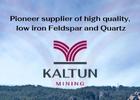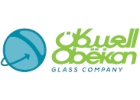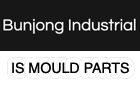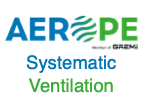In many industrial sectors, controlling high temperatures is not just a matter of equipment performance. It is also a question of safety, energy efficiency, and the durability of installations. When temperatures exceed 500°C, sometimes reaching 1200°C, it becomes imperative to use high-temperature insulation that is suited to the constraints of the environment.
Among the existing solutions, high-temperature technical textiles occupy a prominent place. Their flexibility, lightness, and thermal resistance make them particularly effective for protecting, insulating, and extending the service life of industrial equipment. We offer a comprehensive overview of the industrial applications where these materials are essential, and the appropriate textile solutions.
Thermal insulation for industrial furnaces and boilers
Reducing energy losses in industrial furnaces
In industrial furnaces, heat losses can account for up to 30% of total energy consumption if the insulation is inadequate. To improve efficiency, manufacturers use materials that can reduce thermal conductivity while withstanding significant thermal shocks. Silica fiber solutions, capable of withstanding temperatures up to 1200°C, are widely used to insulate internal walls. Their low thermal conductivity significantly reduces energy losses while protecting the oven's supporting structures.
Protection of mechanical structures using insulating felts
The use of insulating felts inserted between the internal and external walls helps to cushion thermal shocks. These solutions protect mechanical structures from deformation caused by thermal cycles, thereby extending the service life of the equipment.
Easier maintenance thanks to flexible textiles
Flexible, adaptable textiles make it easier to maintain and inspect equipment without compromising thermal insulation efficiency. Customization options (coating, sewing, adhesive addition) are available to facilitate installation and improve the longevity of solutions.
High-temperature insulation in heavy industry
Thermal protection for metallurgical melting furnaces
In steel mills, foundries, and rolling mills, equipment is regularly exposed to temperatures exceeding 1000°C. To limit energy losses, stabilize processes, and extend the service life of installations, high-temperature textile solutions are deployed on melting furnaces, continuous casting lines, and peripheral equipment. Insulating covers made of silica fiber reinforced with stainless steel wires effectively protect sensitive areas.
Glass industry: stabilizing temperatures and securing equipment
In glass manufacturing, thermal uniformity is essential to prevent structural or visual defects. Technical textiles are used to insulate transport channels, annealing furnaces, and forming equipment. Stainless steel fiber helps stabilize the temperature of the glass during manufacturing and protects sensitive equipment from thermal shock. At the end of the glass production line, aramid felt sleeves cover the conveyor rollers to transport hot products without scratching or marking them.
Aluminum industry: supporting extrusion without marking products
During aluminum extrusion, profiles come out of the press at temperatures above 500°C. To preserve their surface quality and support their gradual cooling, specific textile solutions are used:
- High-temperature conveyor belts, particularly made of PBO fiber and aramid for the hottest areas;
- Protective sleeves to cover transfer rollers;
- Insulating felts for conveyors and temporary storage systems.
Thanks to these technical textile solutions, aluminum profiles are transported without contamination, without marking, and under controlled thermal conditions.
Insulation of process equipment: pipes, valves, exchangers
Insulation of pipes to maintain fluid temperature
In pipe networks, every poorly insulated point is a source of heat loss. Fiberglass or silica insulation sleeves help maintain fluid temperature, even over long distances. For certain more sensitive devices, customized solutions combining technical fabrics and insulating felts are preferred.
Insulation of valves and complex components using removable mats
Exposed surfaces present a risk of burns. The use of removable mats or insulating sleeves protects operators while facilitating access to equipment for maintenance.
Resistance to chemical and humid environments
Certain textile sleeves receive specific treatments (PTFE coating, silicone coating) to resist chemical, abrasive, or humid environments, thus ensuring the durability of the insulation.
Expansion joints and high-temperature seals
Thermal movement management
Temperature variations cause significant expansion and contraction in metal structures. Multi-layer textile expansion joints absorb these movements without creating tension, thus preventing cracks and breaks in the ducts.
Maintaining tightness
High-temperature gaskets made of fiberglass, silica, or aramid provide an effective barrier against hot gases, ash, or smoke, even under high mechanical stress. As mentioned in the first section, these seals are used in industrial furnace and boiler doors, as well as in more “consumer” systems such as wood and pellet stoves. In addition to improving the efficiency of installations and ensuring user safety, these seals also prevent the passage of ash, particles, and fumes.
Adaptability to extreme conditions
Depending on requirements, specific textile solutions can incorporate stainless steel reinforcements, flame-retardant layers, or anti-abrasion solutions to meet more severe environmental constraints.
Thermal protection for equipment and personnel
Covers and protection for sensitive electronic equipment
Electronic equipment, sensors, and control cabinets can be seriously damaged by radiant heat. Thermal covers made of aluminized fabric provide effective protection by reflecting and redirecting some of this thermal energy.
Personnel safety with insulated clothing and gloves
In high-temperature work areas, protective clothing made from heat-resistant fibers (aramid, glass, Preox, etc.) ensures personnel safety against hot material splashes, accidental contact, or radiant heat.
Flexibility of installation in confined environments
The flexible design of textile screens and protective equipment allows for quick installation and maintenance on site, even in confined or complex environments.
Specific applications in the automotive and aerospace industries
Thermal insulation for exhaust systems and engines
In the automotive and aerospace industries, basalt, glass, and aramid fabrics are used to protect exhaust systems, engine compartments, and hydraulic components exposed to heat. Their lightness and flexibility are advantages when integrating insulation into confined spaces or devices requiring precise control of component weight.
Thermal and acoustic comfort
High-temperature insulating felts, used for acoustic and thermal insulation, help reduce engine noise while limiting temperature rise in passenger compartments.
Resistance to dynamic stresses
The textiles used must also withstand constant vibrations and significant acceleration, particularly in aeronautical applications.
High-temperature insulation in the chemical and petrochemical industries
Protection of cables and pipes against heat and corrosion
In the chemical and petrochemical sectors, thermal insulation must also offer high chemical resistance. PTFE- or silicone-coated fabrics effectively protect cables, pipes, and hoses carrying corrosive fluids.
High-temperature sealing for reactors and columns
Fiberglass textile gaskets ensure the sealing of reactors, distillation columns, and high-temperature chemical furnaces, while resisting aggressive chemicals. Thanks to their flexibility, these textiles can be integrated into complex installations without requiring major modifications, thus limiting intervention costs. In modern industry, high-temperature insulation is essential to ensure equipment reliability, personal safety, and energy efficiency. High-temperature textile solutions—whether fabrics, sleeves, braids, or compensators—offer a tailored response to environments with multiple constraints, vibrations, and thermal demands. At Ferlam Technologies, we develop and manufacture custom technical textiles, ready to use or to be integrated into ready-made solutions, to meet the thermal challenges of industrial companies.

























